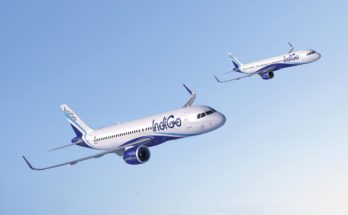by J. Kasper Oestergaard, European Correspondent, Forecast International.

As COVID-19 cases now surge in the United States, the severe effects and restrictions have been a part of daily life in Europe for now over a month. The coronavirus was already present on European soil in late January when the first Chinese visitors were confirmed to have contracted the disease. As of Saturday March 28, Italy and Spain have been impacted the most, accounting for a combined 45 percent of Europe’s 367,473 reported COVID-19 cases and 75 percent of the continent’s 21,791 deaths. In Italy alone, the number of fatalities last week surpassed the 10,000 mark. Germany has reported 57,695 cases, or 16 percent of total European cases, but “only” accounts for 433 fatalities, or 2 percent, which is certainly a figure that stands out. Worldwide, Europe accounts for 56 percent of total COVID-19 cases and 71 percent of fatalities.
The coronavirus continues to wreak havoc on air travel and aerospace and defense manufacturing in Europe. Air carriers have either suspended all flights or reduced their flight schedule by 60-95 percent. Major aerospace and defense manufacturers are, with a few exceptions, still maintaining some level of production. Business travel has almost come to a standstill, as many companies are not receiving guests or physically visiting customers, suppliers and other stakeholders unless deemed business-critical. White collar employees are working remotely where possible and telecons have replaced physical meetings. Companies report that they are monitoring guidelines from the World Health Organization (WHO) and national governments in each of their markets to ensure they are taking appropriate action. Given the critical nature of the defense business, many companies need to continue operating as normally as possible to provide much needed capabilities in order to help governments and members of the armed forces and security services protect national security.
The five European nations with the most reported COVID-19 cases, as illustrated by the chart below, also have major aerospace industries, and Europe’s largest aerospace company, Airbus, has key manufacturing operations in France, Germany, Spain and the U.K. and, to a lesser extent, in Italy as well.
Top Nations by Total Reported COVID-19 Cases: Italy and Spain most affected but few fatalities in Germany

COVID-19 impact on aerospace production, air travel and other activities in Europe – highlights:
- Most companies are maintaining some level of production but have implemented preventive measures such as social distancing, and white collar employees are working from home, if able to.
- Farnborough International Airshow 2020 has been canceled.
- Companies across the industry are bolstering balance sheets and shoring up liquidity.
- As of March 13, all movement of personnel and equipment from the United States to Europe has ceased. NATO exercise Defender-Europe 20 has been modified in size and scope.
- Airbus has withdrawn its 2020 guidance and is bolstering its balance sheet with a new EUR15 billion ($16 billion) credit facility and has canceled its dividend for 2019. Airbus recently closed down its facilities in France and Spain for four days, reopening them on March 23.
- The CEO of U.K. defense giant BAE Systems has announced that its leadership teams around the world are focused on the actions required to protect the health and well-being of employees and their families, while working with customers and suppliers to minimize the impact on business operations.
- Rolls-Royce plans to significantly reduce all but essential activity within its U.K. civil aerospace facilities for one week starting March 27.
- Italian defense major Leonardo states that it cannot rule out a temporary, partial and targeted suspension of operations of certain departments within production sites. The company reports that over 70 percent of employees are present and working at its locations in Italy.
- Fincantieri, the largest shipbuilder in Europe, has extended its production shutdown until April 3 – the shutdown has been in effect since mid-March.
- The F-35 final assembly and checkout (FACO) facility in Cameri, Italy, reopened March 18 after a two-day temporary shutdown to allow for a precautionary cleaning.
- The European Union has suspended all non-essential travel for non-EU citizens for 30 days. The ban was announced on March 17 and immediately went into effect.
- A number of European governments have imposed passenger and/or flight restrictions. Some nations have banned all flights to and from high-risk regions while others have entirely sealed off their borders to foreign nationals.
- Many repatriation/returnee flights have been performed, with many more planned as European nations bring home their citizens from across the world.
- Some airlines have temporarily suspended all flights, while the vast majority have cut back capacity by anywhere from 60-95 percent. For example, Europe’s largest airline, low-cost carrier Ryanair, has suspended all flights until June. British Airways owner IAG will cut capacity by at least 75 percent in April and May. Lufthansa has grounded 700 of its 763 aircraft, although Lufthansa Cargo continues normal flight operations.
- Cash-strapped air carriers are hoping to be able to suspend EU rules that require cash refunds for cancellations and instead issue vouchers.
- Europe’s largest airport by passenger volumes, London’s Heathrow, has implemented many new measures, including the installation of over 600 hand sanitizer dispenser locations across the airport and the closure of all shops and restaurants except for a select few distributing take-away food and pharmaceutical products. In addition, only card payments are accepted, and cleaning procedures and frequencies have been enhanced. Weekly cargo movements at Heathrow are expected to surge by 53 percent as the airport prioritizes cargo flights carrying medical supplies that will assist in the fight against COVID-19.
Airbus Special Coverage
On March 23, Airbus’ CEO Guillaume Faury announced the withdrawal of the company’s 2020 financial guidance and deliveries forecast due to COVID-19. Airbus continues to evaluate its production flow and maintains a strong focus on financial stability and backlog management, and on supporting customers, and securing business continuity even in a protracted crisis. Following a four-day pause, Airbus partially resumed production and assembly work in France and Spain on March 23. Production in Germany and the U.K. continues at normal rates, but production at the wing plants in Bremen, Filton and Broughton will be reduced through the implementation of an extended Easter holiday at Broughton and Filton and a reduced working week at Bremen. The sites will remain open during Easter. When their activities are not directly related to production, Airbus’ employees will work remotely. Airbus is following WHO and local health authority guidelines and has updated its workplace safety and travel recommendations to employees, customers and visitors. Rules are being implemented on day-to-day behaviors concerning hygiene, social interaction and distancing, illness reporting, and travel to and from Airbus sites. The company is restricting travel to business-critical activities, and all travel to high-risk regions has ceased. The same goes for visits to Airbus from high-risk regions, and employees having returned from such areas must self-quarantine for two weeks.
Airbus has also announced measures to bolster its liquidity and ensure financial flexibility. Management has received approval from the board of directors to secure a new credit facility amounting to EUR15 billion ($16.7 billion) in addition to the company’s existing EUR3 billion ($3.3 billion) revolving credit facility. Airbus has also withdrawn its proposed 2019 dividend, a measure that preserves approximately EUR1.4 billion ($1.6 billion). With these actions, Airbus believes it has significant liquidity available to cope with additional cash requirements as a result of the COVID-19 situation. Total liquidity available to Airbus now amounts to approximately EUR30 billion ($33.5 billion).
Additional Perspectives
While it would be premature to make detailed conclusions about how COVID-19 will impact the aviation industry in the future in Europe and the rest of the world, it is reasonable to argue that a potent risk factor has emerged to air travel and aerospace and defense manufacturing. While outbreaks of infectious disease across borders are not unprecedented, in recent history the impact has been geographically concentrated. The SARS outbreak in 2002-04 mainly impacted Southeast Asia and the 2013-16 outbreak of Ebola was predominantly in three nations in West Africa. COVID-19 has demonstrated that infectious diseases can fairly quickly cause great harm to worldwide economic activity due to the measures taken to contain it. While the aerospace and defense industry in general and the air transport industry in particular may not have to completely alter their approach to risk management, companies will certainly have to revisit and revise their models.
As to when the pandemic will ease its grip on the European continent, it is still too early to tell. However, while daily fatalities are on the rise in Italy, daily new cases appear to have stabilized, offering some degree of hope.

Based in Denmark, Joakim Kasper Oestergaard is Forecast International’s AeroWeb and PowerWeb Webmaster and European Editor. In 2008, he came up with the idea for what would eventually evolve into AeroWeb. Mr. Oestergaard is an expert in aerospace & defense market intelligence, fuel efficiency in civil aviation, defense spending and defense programs. He has an affiliation with Terma Aerostructures A/S in Denmark – a leading manufacturer of composite and metal aerostructures for the F-35 Lightning II. Mr. Oestergaard has a Master’s Degree in Finance and International Business from the Aarhus School of Business – Aarhus University in Denmark.

References:
- https://www.airbus.com/newsroom/press-releases/en/2020/03/airbus-adapts-wing-production-activity-in-covid19-environment.html
- https://www.airbus.com/newsroom/press-releases/en/2020/03/airbus-announces-measures-to-bolster-liquidity-and-balance-sheet-in-response-to-covid19.html
- https://www.reuters.com/article/us-airbus-production/airbus-says-plants-to-reopen-at-slower-production-rate-idUSKBN21A01G
- https://www.worldometers.info/coronavirus/
- https://www.defensenews.com/2020/03/20/the-years-biggest-air-show-has-been-cancelled-as-covid-19-sweeps-through-europe/
- https://www.rrpowersystems.com/corona/
- https://www.ainonline.com/aviation-news/aerospace/2020-03-27/rolls-royce-civil-uk-sites-close-one-week-due-covid-19
- https://www.aviationtoday.com/2020/03/24/airbus-boeing-make-production-decisions-amid-covid-19-pandemic/
- https://www.fincantieri.com/en/media/press-releases/2020/stoppage-of-production-activity-further-extended/
- https://www.defensenews.com/industry/2020/03/14/fincantieri-suspends-operations-amid-coronavirus-crisis/
- https://www.mwe.com/insights/new-wave-of-restrictive-measures-to-face-covid-19-outbreak-in-italy-shutdown-of-non-strategic-production/
- https://www.reuters.com/article/us-health-coronavirus-airlines-refunds/european-airlines-resist-mounting-coronavirus-refund-claims-idUSKBN21E2ZM
- https://shape.nato.int/defender-europe/defender/newsroom/exercise-defendereurope-20-announcement-covid19-implications
- https://www.baesystems.com/en/article/coronavirus-update
- https://www.leonardocompany.com/en/press-release-detail/-/detail/24-03-20-leonardo-a-lavoro-oltre-70-dei-dipendenti-previsti-continua-dialogo-con-parti-sociali?f=%2Fhome
- https://www.defensenews.com/coronavirus/2020/03/17/as-coronavirus-rages-italian-f-35-plant-to-reopen-tomorrow-after-precautionary-cleaning/
- https://www.heathrow.com/latest-news/an-open-letter-from-our-chief-commercial-officer
- https://unric.org/en/covid-19-european-union-suspends-non-essential-travel-for-non-eu-citizens/
- https://www.ryanair.com/ie/en/useful-info/disruptions-and-refunds/coronavirus-covid-19/ryanair-suspends-all-italian-flights-to-wed-8-apr-as-government-extends-restrictions-to-all-italy
For 50 years, Forecast International intelligence reports have been the aerospace and defense industry standard for accurate research, analysis, and projections. Our experienced analysts compile, evaluate, and present accurate data for decision makers. FI's market research reports offer concise analysis of individual programs and identify market opportunities. Each report includes a program overview, detailed statistics, recent developments and a competitive analysis, culminating in production forecasts spanning 10 or 15 years. Let our market intelligence reports be a key part of reducing uncertainties and mastering your specific market and its growth potential. Find out more at www.forecastinternational.com


